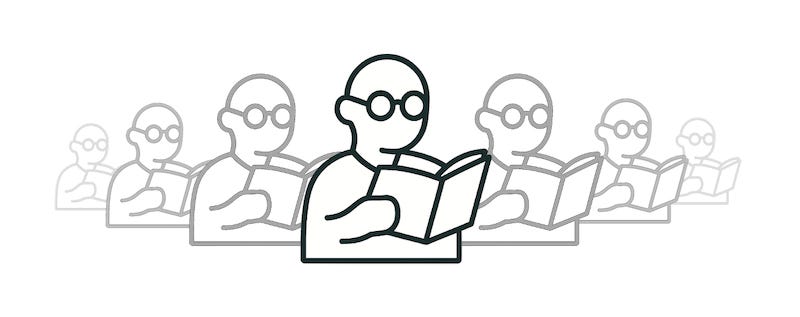The Analyst Vibe - Explained
What can the Analyst teach us about human nature and neurodiversity?
Friends, to get backstage access to the Vibes Project and dive a little deeper with me, join VibesChat. It’s a free group chat using Discord.
Among the four vibes, The Analyst stands apart literally and figuratively.
On the literal side, Analysts (people with a dominant Analyst vibe) tend to be less socially oriented than the other vibes. They can be awkward in social situations. Their focus on rational thinking, rules, systems, and precision is productive and can lead to breakthroughs. But it comes at a cost. Analysts don’t always fit in.
Figuratively, The Analyst provides a sense of contrast. The other vibes: The Feeler, Performer, and Natural, are more tuned to people, social interactions, and culture. The Analyst is more oriented to problem-solving, curiosity, and intellectual pursuits. They often process the world reasoning first, people second.
Here’s how I explained the Analyst vibe in this summary.
Rational Thinking is the perspective that influences how they see the world
Rules and Systems create the environment where they can be comfortable
Intellectual Curiosity is the motivation driving their interests
Precision and Completeness are behaviors that they use to engage
An Epiphany
Last Spring, I spent months researching the concept of nerdiness. The research kept pointing me in one direction: neurodiversity, the idea that our brains perceive and process information in different ways.
Could neurodiversity help me understand vibes?
Neurodiversity isn’t just about diagnoses; it’s about the natural differences in how our brains see and make sense of the world. Each of us has a unique way of noticing details, communicating, and navigating social life. Those patterns come from how our brains are wired and traits we have from birth. For some, those traits are especially strong, which can make them feel a little different or stand apart from the crowd.
While neurodiversity can cause problems with learning, relationships, and work, it also describes traits that exist in everyday life and can be extremely productive. We live and work in a neurodiverse world, even if we don’t realize it. By understanding it, we can optimize for it.
In particular, I became fascinated by autism and the idea that its traits are far more common than we realize. Many people share characteristics that don’t meet the threshold for a diagnosis but still shape how they think, communicate, and relate to the world.
Today, these traits are recognized as part of the broader autism spectrum or phenotype that describes people who may be different, but not impaired. Common examples include:
Rational, rule-based thinking
Attention to detail and precision
Literal interpretation and communication
Deep focus on specific interests
Discomfort or awkwardness in social situations
Everyone’s brain expresses these traits to some degree, but they’re more pronounced for some people. And importantly, traits are not destiny; our brains can adapt and change through experience and practice.
The Analyst Archetype
This new understanding helped me develop an archetype mostly free of the stereotypes and cultural baggage related to nerdiness. The Analyst Vibe offers a way to see, understand, and discuss a part of our nature that has always been there, just under the surface.
It overlaps with traits sometimes associated with autism, not because Analysts are autistic, but because both reflect a particular way of processing the world: detail-first, rule-based, and rational more than social.
In a culture that prizes popularity and performance, the Analyst provides a counterbalance. Their way of thinking is a reminder that objectivity and accuracy matter.
The Analyst in Your Life
We all know people with elements of the Analyst vibe. They are family members, friends, co-workers, or ourselves. They may seem a little peculiar or different, but it’s not a problem.
The Analyst in your life may be socially awkward and communicate in unexpected ways. It can be easy to mistake their direct communication style for coldness, but that’s not often their intent. They are likely sincere and want to help, even if it doesn’t sound that way.
They might dress practically more than fashionably, and have little interest in social drama or pop culture. But once the conversation turns to their interests, they light up. Many are also authentically themselves and see no need to adapt to a culture that can seem frivolous. They proudly stand apart.
We need Analysts, and in today’s world, the traits of Analysts are in high demand. We’re moving from brawn to brains, and Analysts tend to lead that charge.
Next, we’ll take these ideas into the real world and look for examples of well-known people who personify the Analyst Vibe from yesterday and today.



